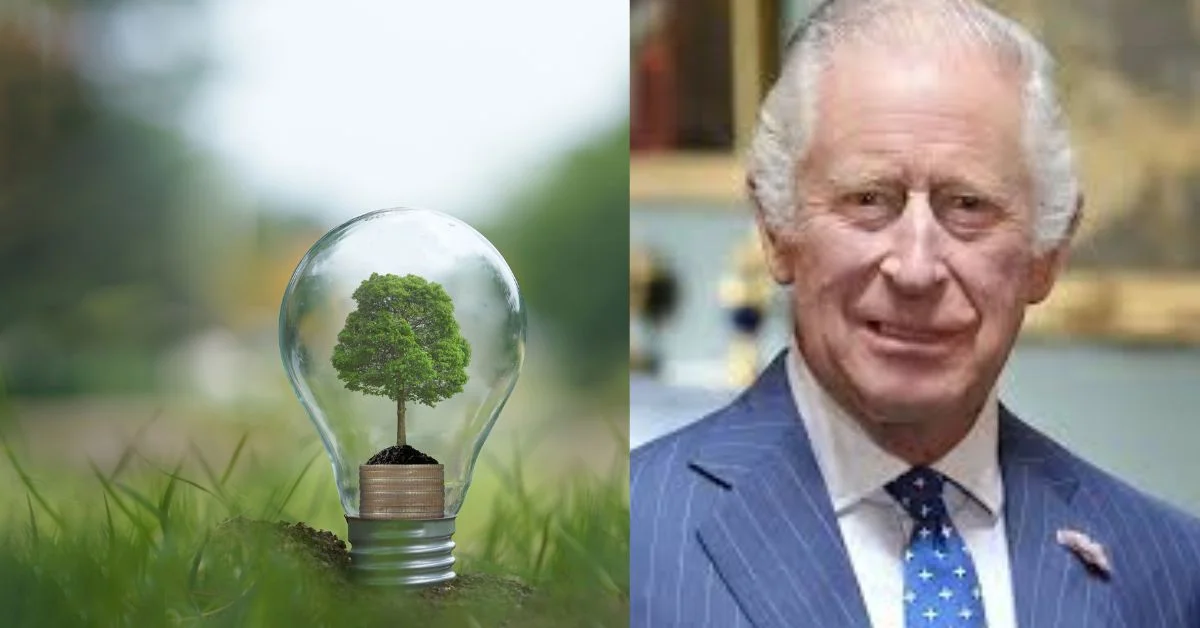King Charles Sustainable Travel Initiatives- King Charles has long been a steadfast advocate for environmental sustainability, earning admiration for his commitment to eco-conscious practices. His initiatives in sustainable travel reflect his dedication to minimizing environmental impact while navigating the royal responsibilities that often demand extensive travel. Recognizing the significant contribution of tourism and travel to global greenhouse gas emissions, King Charles has pioneered efforts to revolutionize the way individuals, businesses, and governments approach transportation and tourism. His vision not only addresses personal practices but also seeks a systemic transformation to embrace sustainable travel on a global scale.
The Environmental Impact of Travel
Travel is one of the leading contributors to carbon emissions, particularly through air and road transportation. Air travel alone is responsible for over 2% of global CO2 emissions, and the tourism industry as a whole significantly impacts the environment. King Charles is acutely aware of these challenges and has taken proactive steps to address them.
As a prominent global figure, King Charles has embraced the responsibility of leading by example. Despite the necessity of frequent travel for royal duties, he ensures that his trips are conducted with an emphasis on sustainability. His initiatives include the use of biofuels, advocating for electric vehicles, and endorsing innovative travel technologies aimed at reducing carbon footprints.
King Charles Sustainable Travel Practices
King Charles’ commitment to sustainability is evident in his travel choices and the broader strategies he supports. Below are key aspects of his sustainable travel initiatives:
1. Eco-Friendly Royal Travel
The royal family’s engagements often require extensive travel across continents, which could have a substantial environmental footprint. King Charles has worked to counterbalance this impact by promoting the use of biofuels in aircraft and adopting low-emission transportation methods. By incorporating sustainable practices into royal travel, he has demonstrated that even high-profile figures can prioritize the environment without compromising their responsibilities.
2. Advocacy for Electric Vehicles
King Charles has been a vocal advocate for the adoption of electric vehicles (EVs). His endorsement of EVs extends beyond personal use to encourage governments and businesses to invest in this cleaner mode of transportation. In doing so, he highlights the importance of reducing dependency on fossil fuels, which are a major source of greenhouse gas emissions.
3. Promotion of Biofuels
Biofuels offer a more sustainable alternative to traditional jet fuel, and King Charles has championed their use in aviation. By incorporating biofuels into his travel plans, he sets a powerful example for the aviation industry, encouraging airlines to adopt greener fuel options.
4. Supporting Sustainable Tourism
King Charles recognizes the vast economic and social significance of the tourism industry. However, he is also aware of its environmental implications. To address this, he advocates for eco-friendly tourism practices, such as supporting accommodations and tour operators that prioritize sustainability. He encourages the integration of renewable energy, waste reduction, and conservation efforts within the tourism sector.
5. Investing in Travel Technology
Innovation is key to building a sustainable future for travel. King Charles has emphasized the need for advancements in travel technology, such as energy-efficient transportation systems and vehicles powered by renewable energy. Through investment in these technologies, he envisions a future where sustainable travel is the standard.

A Vision for Sustainable Travel
King Charles sustainable travel initiatives go beyond immediate actions; they embody a long-term vision for systemic change. His efforts emphasize collaboration among governments, businesses, and individuals to transform the travel industry into one that aligns with environmental goals.
Key elements of this vision include:
- Decarbonizing Tourism: Encouraging the tourism industry to adopt practices that significantly reduce carbon emissions.
- Education and Awareness: Promoting awareness about the environmental impact of travel and inspiring individuals to make eco-friendly choices.
- Global Collaboration: Partnering with international organizations to set benchmarks for sustainable travel practices.
Leading by Example
King Charles exemplifies the principle of leading by example. His initiatives demonstrate that sustainability can be integrated into even the most complex travel schedules. By blending personal responsibility with advocacy for systemic change, he has inspired a shift in attitudes toward sustainable travel.
Challenges and Opportunities: King Charles Sustainable Travel
While King Charles sustainable travel initiatives are commendable, challenges remain in achieving widespread adoption. The transition to sustainable travel requires significant investment, technological advancements, and global cooperation. However, these challenges also present opportunities for innovation and economic growth within the green travel sector.
Governments, businesses, and individuals must work together to overcome these challenges and support the vision of a sustainable travel future. King Charles’ initiatives serve as a rallying call for collective action, emphasizing that meaningful change is possible when everyone contributes.
Conclusion: King Charles Sustainable Travel
King Charles sustainable travel initiatives highlight the importance of addressing the environmental impact of travel while fostering a global culture of responsibility. By promoting eco-friendly practices, supporting technological advancements, and advocating for systemic change, he has established a model for sustainable travel that others can follow. His vision extends beyond personal actions, aiming to transform the tourism and travel industry into a force for positive environmental change. As the world grapples with the challenges of climate change, King Charles’ efforts serve as a powerful reminder that sustainability is not just a choice but a necessity.
Frequently Asked Questions (FAQs)
1. What are King Charles sustainable travel initiatives?
King Charles sustainable travel initiatives focus on reducing the environmental impact of travel by advocating for the use of biofuels, electric vehicles, and eco-friendly tourism practices. He also supports advancements in travel technology and encourages systemic changes in the tourism industry.
2. How does King Charles reduce the carbon footprint of his royal travel?
King Charles reduces his carbon footprint by incorporating biofuels into his air travel, using electric vehicles for ground transportation, and prioritizing sustainable practices in his travel arrangements.
3. Why is sustainable travel important to King Charles?
Sustainable travel is important to King Charles because of its significant impact on the environment. By promoting eco-friendly practices, he aims to address climate change and inspire global action toward reducing carbon emissions.
4. What role does technology play in King Charles’ vision for sustainable travel?
Technology plays a crucial role in King Charles’ vision for sustainable travel. He advocates for the development of energy-efficient transport systems, renewable energy-powered vehicles, and innovative solutions to minimize the environmental impact of travel.
5. How does King Charles promote sustainable tourism?
King Charles promotes sustainable tourism by encouraging eco-friendly practices in the tourism industry, such as supporting accommodations that use renewable energy, reducing waste, and emphasizing conservation efforts.
6. What can individuals do to support King Charles sustainable travel vision?
Individuals can support King Charles sustainable travel vision by making eco-friendly travel choices, such as using public transport, opting for electric vehicles, choosing sustainable tourism options, and reducing unnecessary air travel.








